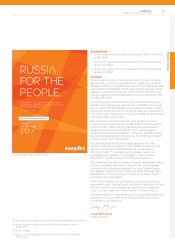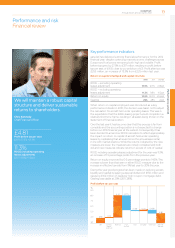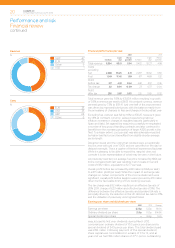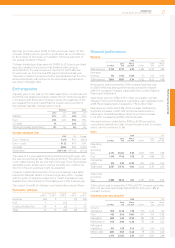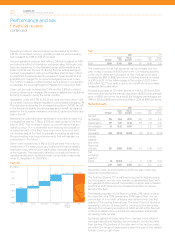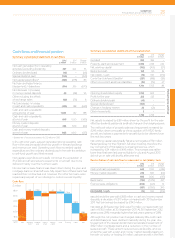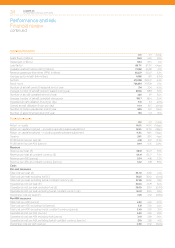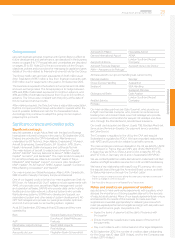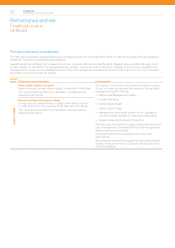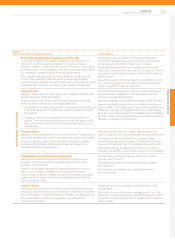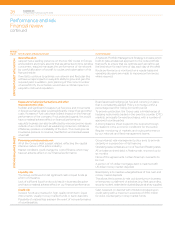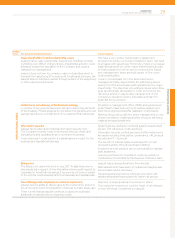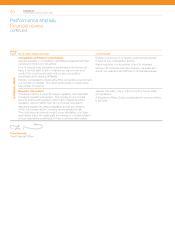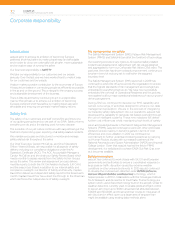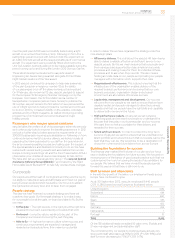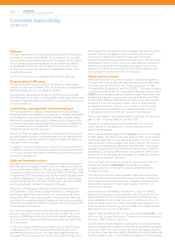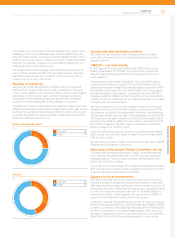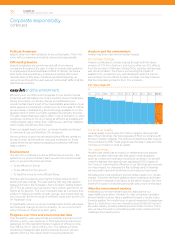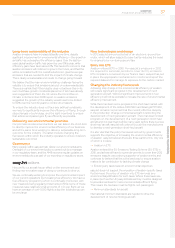EasyJet 2012 Annual Report Download - page 29
Download and view the complete annual report
Please find page 29 of the 2012 EasyJet annual report below. You can navigate through the pages in the report by either clicking on the pages listed below, or by using the keyword search tool below to find specific information within the annual report.
Strategic
impact Risk description and potential impact Current mitigation
OPERATIONAL EXCELLENCE
Impact of mass disruption in peak seasonal months
A number of factors can lead to widespread disruption to our
network, including epidemics / pandemics, forces of nature
(extreme weather, volcanic ash, etc), acts of terrorism, union activity
and strike action. Any widespread disruption could adversely affect
our reputation, operational and financial performance.
If the widespread disruption occurred during our peak summer
months then easyJet’s financial results would be significantly
impacted. As load factors are also higher during this period, it would
potentially take longer to recover from any significant disruption.
Processes in place to adapt to widespread disruption.
A full crisis management exercise is performed regularly
anda business continuity programme is in place.
Significant analysis and senior management focus has
resulted in crewing solutions being put into place to further
recognise the external factors and volatility that impact the
airline industry.
easyJet has a strong financial balance sheet allowing us to
be in a strong position to withstand potential events that
result in periods of reduced revenues.
Single fleet risk
easyJet is dependent on Airbus as its sole supplier for aircraft, with
two aircraft types (A319 and A320).
There are significant cost and efficiency advantages of a single
fleet, however there are two main associated risks:
A Technical or mechanical issues that could ground the full fleet or
part of the fleet which could cause negative perception by the
flying public.
A Valuation risks which crystallise on the ownership exit of the
aircraft. The main exposure at this time is with the ageing A319
fleet, where we are reliant on the future demand for second-
hand aircraft.
The efficiencies achieved by operating a single fleet type
are believed to outweigh the risks associated with the
Company’s single fleet strategy.
Rigorous established maintenance programme is followed.
easyJet constantly reviews the second-hand market and
has a number of different options when looking at fleet exit
strategies, e.g. easyJet’s targeted fleet mix is a 70:30 split
between owned and leased. This facilitates the exit strategy
of older A319s, protects residual values as well as increasing
flexibility in managing the fleet size.
IT system failure
easyJet is currently dependent on a number of key IT systems and
processes operated at London Luton airport and other keyfacilities.
A loss of systems and access to facilities including the website,
could lead to significant disruption and have an operational,
reputational and financial impact.
Key systems are hosted in multiple datacentres in two
distinct locations with failover arrangements between them.
A business continuity programme including disaster
recovery arrangements is in place. This is being refined to
ensure continued alignment to operational requirements.
Alternative sites are available should there be a need to
relocate critical staff at short notice due to a loss of facilities.
Dependence on third-party service providers
easyJet has entered into agreements with third party service
providers for services covering a significant proportion of its
operation and cost base.
Failure to adequately manage third party performance would
affectour reputation, operation and financial performance.
Loss of these contracts, inability to renew or negotiate favourable
replacement contracts could have a material adverse effect on
future operating costs.
Processes are in place to manage third party service
providerperformance.
Centralised procurement department that negotiates
keycontracts.
Most developed markets have suitable alternative
serviceproviders.
Industrial action
Large parts of the easyJet workforce are unionised. Similar issues
exist at our key third party service providers. If any action was taken
this could impact on easyJet’s ability to maintain our flight schedule.
This could adversely affect our reputation, operational and
financialperformance.
Employee and union engagement takes place on a
regularbasis.
Significant analysis and senior management focus has
resulted in crewing solutions being put into place to further
recognise the external factors and volatility that impact the
airline industry.
Performance and risk
easyJet plc
Annual report and accounts 2012 27


